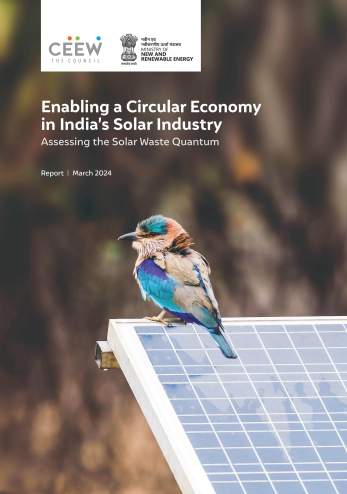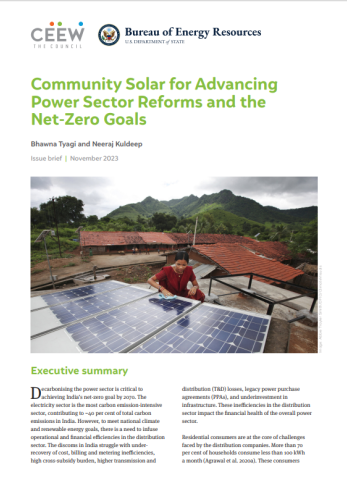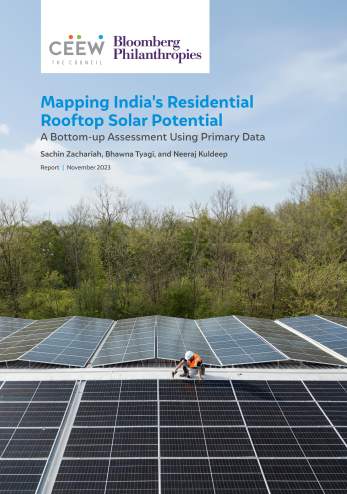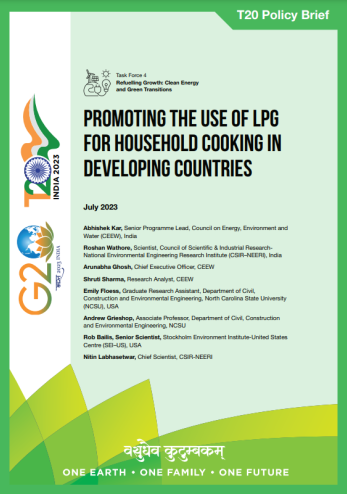Paper
Redefining Prosperity
Abhishek Jain and Sanjana Chhabra
May 2022 | Energy Transitions, International Cooperation
Jain, Abhishek and Sanjana Chhabra. 2022. Redefining prosperity. Stockholm+50 background paper series. Stockholm Environment Institute, Stockholm.
Overview
This paper, in collaboration with the Stockholm Environment Institute (SEI), emphasises on the need to redefine prosperity as straining planetary boundaries any further would lead to catastrophic consequences. It highlights how the chase of material gains is leading to rising social inequity and rapidly declining natural capital and underlines that the biggest roadblock is reorienting societies from ‘growth’ to ‘prosperity’. The paper also examines the progress made towards redefining prosperity beyond indicators like the Gross Domestic Product(GDP). Finally, it presents recommendations to redefine prosperity so that everyone can collectively benefit from a thriving natural environment and a cohesive society.
Key Highlights
- At the national level, economic growth measured through GDP is the key goal that countries currently pursue. However, GDP ignores various determinants of prosperity, such as the quality of social relationships, financial security and personal safety, health and longevity. It also doesn’t recognise the inequality among populations and fails to account for the depletion of natural, human and social capital.
- Major intergovernmental organisations like the Organisation for Economic Cooperation and Development (OECD), the European Parliament and countries like Bhutan and Canada have been exploring ways of measuring progress and well-being more broadly instead of considering GDP as the sole measure.
- A nation’s influence in international affairs continues to be strongly determined by its economic heft and military strength (which in turn are strongly linked to the size of the economy). Moving beyond the pursuit of economic growth could make the first-mover nations vulnerable in the economic power struggle.
- At an individual level, success is associated with material consumption and wealth. This acts as a significant barrier in reorienting our societies to pursue redefined prosperity.
- Most businesses thrive by promoting greater consumption of the goods and services they offer, which directly leads to greater resource utilisation. Excessive reliance on the model of consumption-led value generation for shareholders poses a barrier for businesses to reorient themselves from growth to prosperity beyond material wealth.
Key Recommendations
- Define the fundamental principles of prosperity, with long-term human well-being in a thriving natural environment and cohesive society at its core
- Mainstream the narrative of redefining prosperity within countries through consultative approaches to generate (political) buy-in
- Ensure that redefined prosperity (and associated indicators) must go beyond their symbolism, and these must play an instrumental role
- Strive for dematerialisation and absolute decoupling of economic growth, combined with sustainable consumption and equitable resource distribution
- Institute a wealth tax as it can be instrumental in furthering the redefined prosperity agenda
Global leaders – political, business, religious – must come together and recognize the need for redefining prosperity for economies and individuals. They must adopt a redefined prosperity agenda and employ it to instrumentally change our individual and collective priorities.







